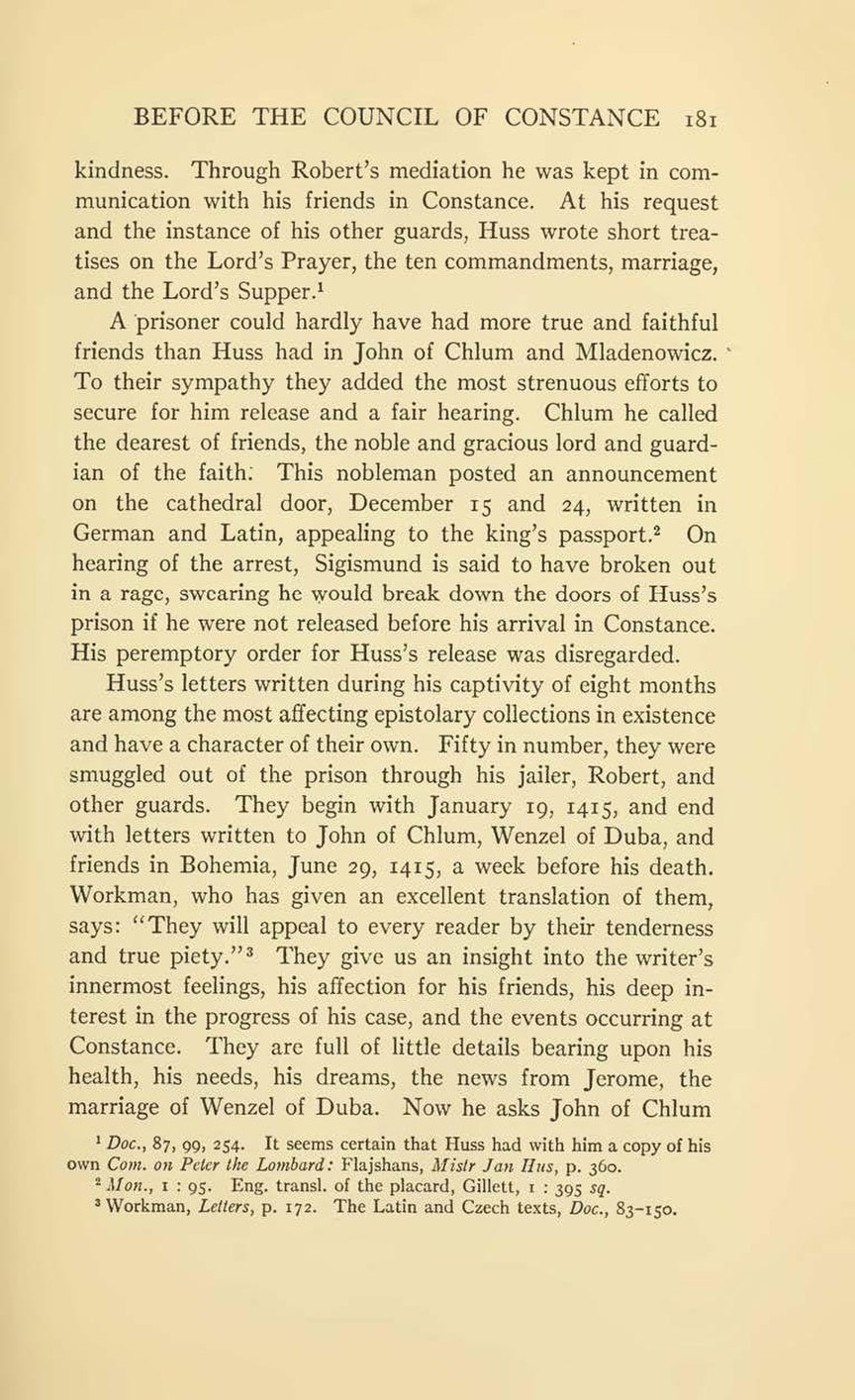kindness. Through Robert’s mediation he was kept in communication with his friends in Constance. At his request and the instance of his other guards. Huss wrote short treatises on the Lord’s Prayer, the ten commandments, marriage, and the Lord’s Supper.[1]
A prisoner could hardly have had more true and faithful friends than Huss had in John of Chlum and Mladenowicz. To their sympathy they added the most strenuous efforts to secure for him release and a fair hearing. Chlum he called the dearest of friends, the noble and gracious lord and guardian of the faith. This nobleman posted an announcement on the cathedral door, December 15 and 24, written in German and Latin, appealing to the king’s passport.[2] On hearing of the arrest, Sigismund is said to have broken out in a rage, swearing he would break down the doors of Huss’s prison if he were not released before his arrival in Constance. His peremptory order for Huss’s release was disregarded.
Huss’s letters written during his captivity of eight months are among the most affecting epistolary collections in existence and have a character of their own. Fifty in number, they were smuggled out of the prison through his jailer. Robert, and other guards. They begin with January 19, 1415, and end with letters written to John of Chlum. Wenzel of Duba, and friends in Bohemia. June 29, 1415, a week before his death. Workman, who has given an excellent translation of them, says: “They will appeal to every reader by their tenderness and true piety.“[3] They give us an insight into the writer’s innermost feelings, his affection for his friends, his deep interest in the progress of his case, and the events occurring at Constance. They are full of little details bearing upon his health, his needs, his dreams, the news from Jerome, the marriage of Wenzel of Duba. Now he asks John of Chlum
